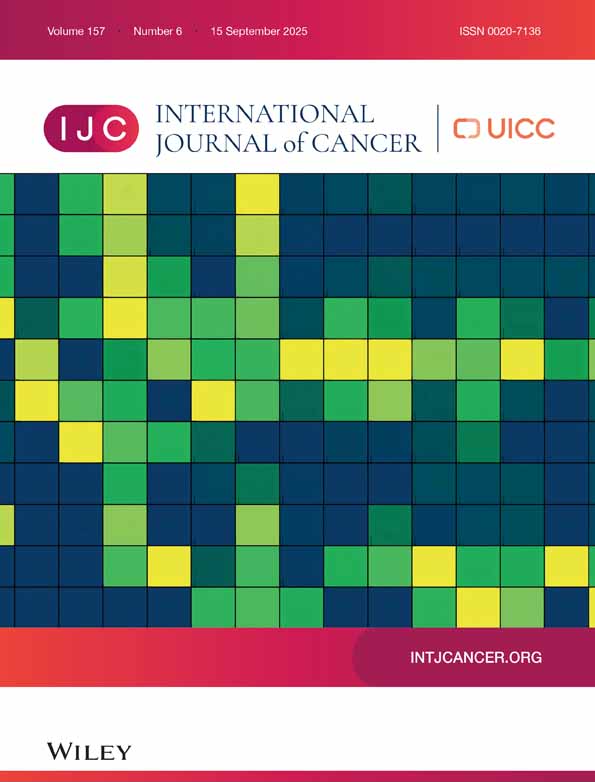Expression of SIALYL-Lex antigen defined by MAb AM-3 is an independent prognostic marker in colorectal carcinoma patients
Abstract
Expression of mucin-bound sialyl-Lex antigen during the progression of colorectal carcinoma and its potential prognostic value were analysed in sections of tumours from 182 patients with a documented follow-up by immunohistochemistry using the monoclonal antibody (MAb) AM-3. Two groups of colonic carcinomas with weak (n = 79) and strong (n = 103) sialyl-Lex expression were discerned. The percentage of strongly expressing tumours increased with the progression of the disease (UICC stage I = 10%, stage II = 46%, stage III = 63%, stage IV = 68%, p < 0.0001). Seventy-four percent of patients with carcinomas exhibiting a strong sialyl-Lex expression but only 34% of patients with weak sialyl-Lex expression died of the disease (p = 0.0026). In multivariate analysis, strong sialyl-Lex expression increased the relative risk of cancer-related death 3.8-fold (95% CI = 1.8–7.9, p = 0.00034). The separate analyses of patients in UICC stage II (n = 56), III (n =5 9) and IV (n = 57) revealed that strong sialyl-Lex expression was associated with a reduction of the 5-year overall survival rate in UICC stage II (84% vs. 54%, p = 0.0013) and in stage III patients (86% vs. 35%, p = 0.0008) after curative resection but was not relevant in patients with distant metastases. In conclusion, the strong expression of sialyl-Lex antigen defined by the MAb AM-3 in colorectal carcinomas is an independent unfavourable prognostic factor after curative resection in stage II and III patients. The predictive power of the sialyl-Lex expression may be helpful to define subgroups of patients at high risk for whom preventive adjuvant therapy can be selectively applied before the occurrence of detectable metastases. Int. J. Cancer 88:281–286, 2000. © 2000 Wiley-Liss, Inc.




